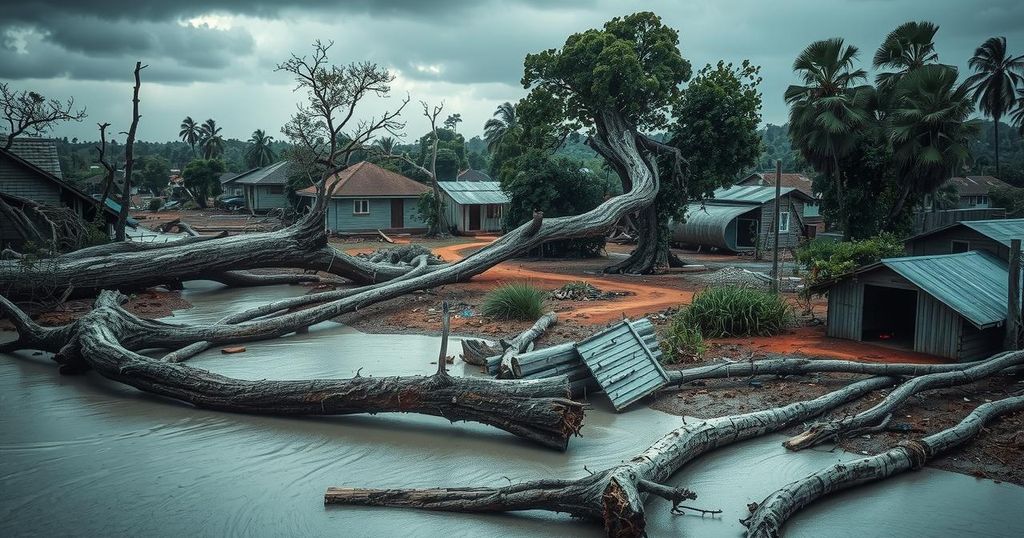Madagascar’s Cyclone Batsirai Death Toll Approaches 100 Amidst Destruction

Cyclone Batsirai has claimed 92 lives in Madagascar, affecting 91,000 people and damaging homes. It is the second cyclone to hit the nation in two weeks, exacerbating existing food shortages due to a severe drought. Efforts for relief are hampered by significant infrastructure damage across affected regions.
In Madagascar, the death toll attributed to Cyclone Batsirai has tragically reached 92, as reported by the state disaster relief agency. The cyclone struck the island nation late on Saturday, severely damaging homes and infrastructure, particularly along the southeastern coast, and impacting about 91,000 individuals with either destroyed or damaged residences.
The calamity intensified following a previous cyclone, Ana, which had already claimed 55 lives and displaced 130,000 individuals just weeks earlier. The disaster relief agency noted that most casualties occurred in the Ikongo district, where 60 fatalities were confirmed, primarily due to drowning or collapsing structures.
The situation in Madagascar is further compounded by existing food shortages due to a prolonged drought in the southern region. The World Food Programme has indicated that Cyclone Batsirai has exacerbated these conditions by destroying imminent crops of rice, fruits, and vegetables, significantly heightening food insecurity.
In terms of infrastructure, Cyclone Batsirai led to severe flooding that rendered 12 roads and 14 bridges unusable, isolating affected communities and complicating the delivery of essential relief efforts. This natural disaster highlights the increasing vulnerability of Madagascar amid climate challenges, demanding urgent attention and assistance from the global community.
Cyclone Batsirai has resulted in significant loss of life and property in Madagascar, with the death toll reaching 92 and approximately 91,000 individuals affected. This cyclone compounds the challenges faced by the nation, which is already grappling with food insecurity and the aftermath of a previous cyclone. Rapid relief efforts are hindered by damaged infrastructure, emphasizing the dire need for assistance and intervention.
Original Source: www.aljazeera.com






